
Princeton University
Posted in Ivy LeaguePrinceton University in Princeton, New Jersey, is a research university and part of the Ivy League. It is also one of the nine colleges to be founded before the American Revolution (known as the Colonial Colleges). Princeton does not have schools of law, medicine, or business, although it offers professional degrees through the School of Engineering and Applied Science, the School of Architecture, and the Woodrow Wilson School of Public and International Affairs. It has close ties to the Presbyterian Church, although it is not associated with any specific denomination.
History
Princeton University was founded by the New Light Presbyterians in 1747. It wasn’t called Princeton, however, but rather the “College of New Jersey”, and was created to train ministers. It moved to Princeton, New Jersey in 1756. The college’s focus was shifted from training ministers to preparing a new generation for leadership under John Witherspoon during his presidency, which lasted from 1768 to 1794. The college experience a long period of stability under Witherspoon’s leadership until the American Revolution, when the college was briefly occupied by British soldiers during the Battle of Princeton. The college was reclaimed by American forces under George Washington, who routed the British by firing cannons on the buildings. The Evelyn College for Women was established in 1887, but it was closed after a decade. Princeton began admitting women as undergraduates in 1969.

Programs
The Woodrow Wilson School is a major center of research and education in both international and public affairs. The undergraduate program presents a multidisciplinary major in international and public affairs, while the graduate program offers a 1 year Master in Public Policy degree, a 2 year Master in Public Affairs degree, and a Ph.D. It is one of the University’s biggest departments, as 160 juniors and seniors major in the School each year. There are also 20-25 students in the M.P.P. program, 140 in the M.P.A. program, and 40 in the Ph.D. program. Princeton also has one of the finest economics departments in the world. The Department of Economics is one of the most popular concentrations on campus. Each student writes a paper on the topic of his or her choice during their junior year, and writes a senior thesis during senior year, which allows students to take on more ambitious topics. The graduate program is also terrific, although admission to the program is very selective; Princeton receives around 900 applications each year for a class of only 20-25 students. Princeton also has a great History Department. The department offers course work at both the undergraduate and graduate level in a large number of fields, including pre-modern European history, history of the United States, and the history of science.

Pros & Cons
Princeton is tied with Harvard for the #1 spot in the U.S. News’ University Rankings. Students at Princeton receive a top tier education and are prepared for high-paying careers. The 6:1 student-faculty ratio is excellent, and approximately 70% of classes have fewer than 20 students. Princeton, New Jersey is a small town, however, with only 30 000 people, and does not offer the attractions or night life of Boston or New York. It also does not have a law, medical, or business school. It is very selective – only an 8.5% acceptance rate in Fall 2011. While it isn’t as expensive as some other Ivy League schools, tuition does cost over $38 000 while residence costs over $12 000. As such, 59.4% of undergraduate students receive financial aid.

 Brown University
Brown University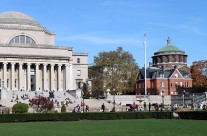 Columbia University
Columbia University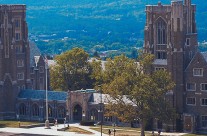 Cornell University
Cornell University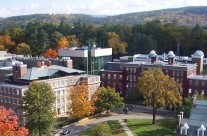 Dartmouth University
Dartmouth University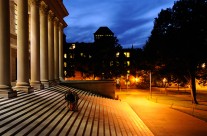 Harvard University
Harvard University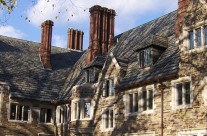 Princeton University
Princeton University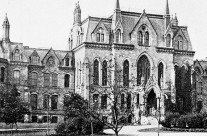 University of Pennsylvania
University of Pennsylvania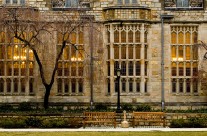 Yale University
Yale University